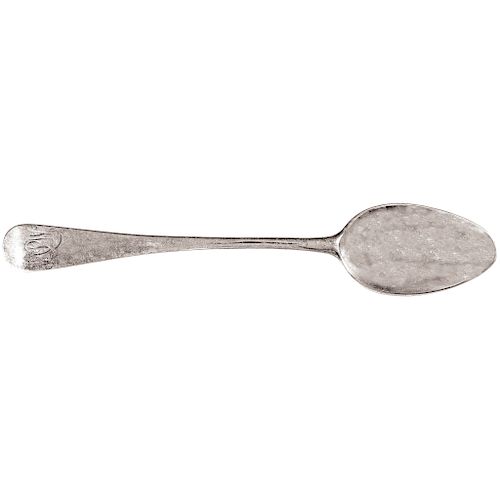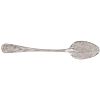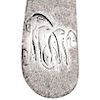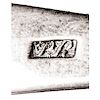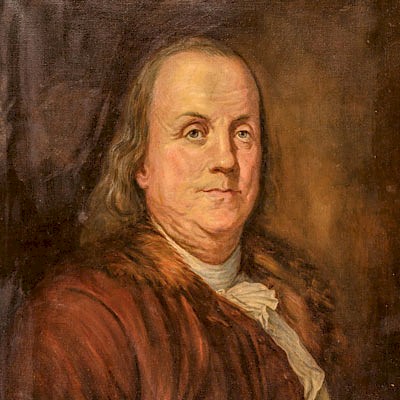c. 1770 PAUL REVERE, JR. (1735-1818) Handmade Hallmarked PR Coin Silver Teaspoon
Lot 109
Estimate:
$7,500 - $8,500
Absentee vs Live bid
Two ways to bid:
- Leave a max absentee bid and the platform will bid on your behalf up to your maximum bid during the live auction.
- Bid live during the auction and your bids will be submitted real-time to the auctioneer.
Bid Increments
| Price | Bid Increment |
|---|---|
| $0 | $10 |
| $200 | $20 |
| $300 | $25 |
| $500 | $50 |
| $1,000 | $100 |
| $2,000 | $200 |
| $3,000 | $250 |
| $5,000 | $500 |
| $10,000 | $1,000 |
| $20,000 | $2,000 |
| $30,000 | $2,500 |
| $50,000 | $5,000 |
| $100,000 | $10,000 |
| $200,000 | $20,000 |
| $300,000 | $25,000 |
| $500,000 | $50,000 |
About Auction
By Early American History Auctions
Aug 24, 2019
Set Reminder
2019-08-24 12:00:00
2019-08-24 12:00:00
America/New_York
Bidsquare
Bidsquare : Autographs, Colonial Currency, Political Americana, Historic Guns
https://www.bidsquare.com/auctions/early-american-history-auctions/autographs-colonial-currency-political-americana-historic-guns-4347
Historic Autographs • Colonial Currency • American Civil War Colonial Era • Revolutionary War • Political Americana • Black History Early American History Auctions auctions@earlyamerican.com
Historic Autographs • Colonial Currency • American Civil War Colonial Era • Revolutionary War • Political Americana • Black History Early American History Auctions auctions@earlyamerican.com
- Lot Description
Colonial America
PAUL REVERE, Jr. Hallmarked Punched "PR" Teaspoon
c. 1770 Colonial Era, Paul Revere, Jr. (1735-1818), Silversmith Handmade Coin Silver Decorated Teaspoon, Hallmarked Punch with his Script "PR", Choice Extremely Fine.
An authentic original historic Silversmith Paul Revere made Silver Teaspoon. Its bowl end measures 1" wide x 2" long with an overall length of 5.5 inches (2.5 x 14.2 cm.). The front end of the handle has engraved intertwined stylized initials: "MLW", also Hand-Engraved by Paul Revere. Just below on the underside of the handle it shows Revere's extremely rare Script style "PR" hallmark punch, which is extremely clear and sharply defined, being one of the very best we have seen. This superior quality Revere Spoon has nice even natural bright silver appearance, showing very light actual wear. It has choice eye appeal, bearing no major detractions. In 2007 we sold a slightly larger Paul Revere hallmarked Coin Silver Tablespoon, which brought $14,000. Another example of this Script style "PR" hallmarked Teaspoon was sold in our EAHA Auction, August 26, 2016, Lot 140 graded Very Fine, which brought $7,800. Most recently a similar quality Teaspoon sold in our EAHA Auction of August 30, 2018, Lot 1050 graded Choice EF, which brought $9,600. This Script "PR" hallmark punch is identified in the book, "Handbook of American Silver and Pewter Marks" by C. Jordan Thorn, page 171, under the header "Revere, Paul 1735-1818" with the stylized drawing of this punch shown. It is also identified in the reference: "Paul Revere, Goldsmith 1735-1818" by Kathryn Buhler, by the Museum of Fine Arts, Boston, illustrated for design type on page 64, noted as "Mark 8." An attractive and important opportunity for Paul Revere, Jr. and early American Silver collectors.
Paul Revere, Jr. (January 1, 1735 - May 10, 1818) was an American Silversmith and Engraver, Member of the Sons Of Liberty, Military Officer, a noted Patriot in the American Revolution. Because he was immortalized after his death for his role as a messenger in the battles of Lexington and Concord, Revere's name and his "Midnight ride" are well-known in the United States as a patriotic symbol.
In his lifetime, Revere was a prosperous and prominent Boston craftsman, who helped organize an intelligence and alarm system to keep watch on the British military. Revere later served as an officer in one of the most disastrous campaigns of the American Revolutionary War, a role for which he was later exonerated. After the war he was early to recognize the potential for large-scale manufacturing of metal, including a foundry for Bells and Copper Sheeting used on the Massachusetts State House and in building the frigate USS Constitution (a.k.a. Old Ironsides).
- Shipping Info
-
Early American provides in-house worldwide shipping. Please contact us directly if you have questions about your specific shipping requirements.
-
- Buyer's Premium



 EUR
EUR CAD
CAD AUD
AUD GBP
GBP MXN
MXN HKD
HKD CNY
CNY MYR
MYR SEK
SEK SGD
SGD CHF
CHF THB
THB